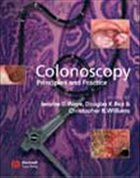Endoscopy is a medical specialism that is actively recruiting new entrants. There is considerable demand for colonoscopists in the USA and the UK to meet the respective guidelines for colorectal cancer screening in the general population. In the USA, it is recommended that men and women aged 50 years and older get screened for colorectal cancer as many studies have shown that screening reduces mortality from cancer. Colorectal cancer is the second leading cause of death in the US: the American Cancer Society estimates that 148, 300 new cases will be diagnosed in 2002.
Colonoscopy is now a mainstream procedure and is widely used as a screening and treatment tool for colorectal cancer and inflammatory bowel disease. As a result, the focus is now changing from developing new techniques to enhancing the efficiency and quality of fundamental techniques. There are three elements to this agenda: initial training, continuous quality improvement and patient empowerment.
The table of contents has been created with these three elements at the fore. It is an extremely comprehensive textbook aimed primarily at the experienced colonoscopist but the book will be an extremely useful manual of procedures - clinical, administrative and managerial - for everyone working in the Endoscopy Unit.
1. General Aspects of Colonoscopy
History of Colonoscopy in the Rectum and Colon
The Colonoscopy Suite
The Colonoscopy Assistant
Informed Consent for Colonoscopy
2. Teaching and Quality Aspects
Training in Colonoscopy
Teaching Aids in Colonoscopy
Teaching Colonoscopy
Role of Simulators in Endoscopy
Continuous Quality Improvement in Colonoscopy
3. Indications, Contraindications, Screening, and Complications
Indications and Contraindications
Diagnostic Yield of Colonoscopy by Indication
Screening Colonoscopy: Rationale and Performance
Cost-effectiveness of Colonoscopy Screening
Hereditary Colorectal Cancer
Complications
4. Reports and Imaging
Standardization of the Endoscopic Report
Reporting and Image Management
5. Preparation for Colonoscopy
Preparation for Colonoscopy
Antibiotic Prophylaxis for Colonoscopy
Management of Anticoagulation and Antiplatelet Agents
Sedation for Colonoscopy
6. Hardware
The Video Colonoscope
The Colonoscope Insertion Tube
Magnetic Imaging of Colonoscopy
Accessories
Clips, Loops, and Bands: Applications in the Colon
Colonoscopic Biopsy
Cleaning and Disinfection
7. Basic Procedure
Insertion Technique
Missed Neoplasms and Optimal Colonoscopic Withdrawal Technique
8. Colon Polyps: Incidence, Growth and Pathology
Polyp Biology
Colon Polyps, Prevalence rates, Incidence Rates, and Growth Rates
Pathology of Colorectal Polyps
9. Polypectomy
Principles of Electrosurgery, Laser, and Argon Plasma Coagulation with Particular Regard to Colonoscopy
Polypectomy - Basic Principles
Difficult Polypectomy
Retrieval of Colonic Polyps
10. Malignant Polyp, Surveillance Post-Polypectomy, Post-Cancer Resection
Management of the Malignant Polyps
Postpolypectomy Surveillance
Colonoscopy after Colon Cancer Resection
11. Neoplastic Detection and Staging: New Techniques
Magnifying Colonoscopy, Early Colorectal Cancer, and Flat Adenomas
Flat and Depressed Colorectal Adenomas in the Western Hemisphere
Chromoendoscopy
Optical Techniques for the Endoscopic Detection of Early Dysplastic Colonic Lesions
Endoscopic Ultrasonography of the Colon
Virtual Colonoscopy in the Evaluation of Colonic Diseases
12. Clinical use of Colonoscopy
Colonoscopy and Severe Hematochezia
Endoscopy in Inflammatory Bowel Diseases
Infections and Other Noninflammatory-Bowel-Disease Colitides
Acute Colonic Pseudo-obstruction
Radiation Proctopathy
Benign and Malignant Colorectal Strictures
Pediatric Colonoscopy
13. Future of Colonoscopy
The Future of Colonoscopy
Colonoscopy is now a mainstream procedure and is widely used as a screening and treatment tool for colorectal cancer and inflammatory bowel disease. As a result, the focus is now changing from developing new techniques to enhancing the efficiency and quality of fundamental techniques. There are three elements to this agenda: initial training, continuous quality improvement and patient empowerment.
The table of contents has been created with these three elements at the fore. It is an extremely comprehensive textbook aimed primarily at the experienced colonoscopist but the book will be an extremely useful manual of procedures - clinical, administrative and managerial - for everyone working in the Endoscopy Unit.
1. General Aspects of Colonoscopy
History of Colonoscopy in the Rectum and Colon
The Colonoscopy Suite
The Colonoscopy Assistant
Informed Consent for Colonoscopy
2. Teaching and Quality Aspects
Training in Colonoscopy
Teaching Aids in Colonoscopy
Teaching Colonoscopy
Role of Simulators in Endoscopy
Continuous Quality Improvement in Colonoscopy
3. Indications, Contraindications, Screening, and Complications
Indications and Contraindications
Diagnostic Yield of Colonoscopy by Indication
Screening Colonoscopy: Rationale and Performance
Cost-effectiveness of Colonoscopy Screening
Hereditary Colorectal Cancer
Complications
4. Reports and Imaging
Standardization of the Endoscopic Report
Reporting and Image Management
5. Preparation for Colonoscopy
Preparation for Colonoscopy
Antibiotic Prophylaxis for Colonoscopy
Management of Anticoagulation and Antiplatelet Agents
Sedation for Colonoscopy
6. Hardware
The Video Colonoscope
The Colonoscope Insertion Tube
Magnetic Imaging of Colonoscopy
Accessories
Clips, Loops, and Bands: Applications in the Colon
Colonoscopic Biopsy
Cleaning and Disinfection
7. Basic Procedure
Insertion Technique
Missed Neoplasms and Optimal Colonoscopic Withdrawal Technique
8. Colon Polyps: Incidence, Growth and Pathology
Polyp Biology
Colon Polyps, Prevalence rates, Incidence Rates, and Growth Rates
Pathology of Colorectal Polyps
9. Polypectomy
Principles of Electrosurgery, Laser, and Argon Plasma Coagulation with Particular Regard to Colonoscopy
Polypectomy - Basic Principles
Difficult Polypectomy
Retrieval of Colonic Polyps
10. Malignant Polyp, Surveillance Post-Polypectomy, Post-Cancer Resection
Management of the Malignant Polyps
Postpolypectomy Surveillance
Colonoscopy after Colon Cancer Resection
11. Neoplastic Detection and Staging: New Techniques
Magnifying Colonoscopy, Early Colorectal Cancer, and Flat Adenomas
Flat and Depressed Colorectal Adenomas in the Western Hemisphere
Chromoendoscopy
Optical Techniques for the Endoscopic Detection of Early Dysplastic Colonic Lesions
Endoscopic Ultrasonography of the Colon
Virtual Colonoscopy in the Evaluation of Colonic Diseases
12. Clinical use of Colonoscopy
Colonoscopy and Severe Hematochezia
Endoscopy in Inflammatory Bowel Diseases
Infections and Other Noninflammatory-Bowel-Disease Colitides
Acute Colonic Pseudo-obstruction
Radiation Proctopathy
Benign and Malignant Colorectal Strictures
Pediatric Colonoscopy
13. Future of Colonoscopy
The Future of Colonoscopy

